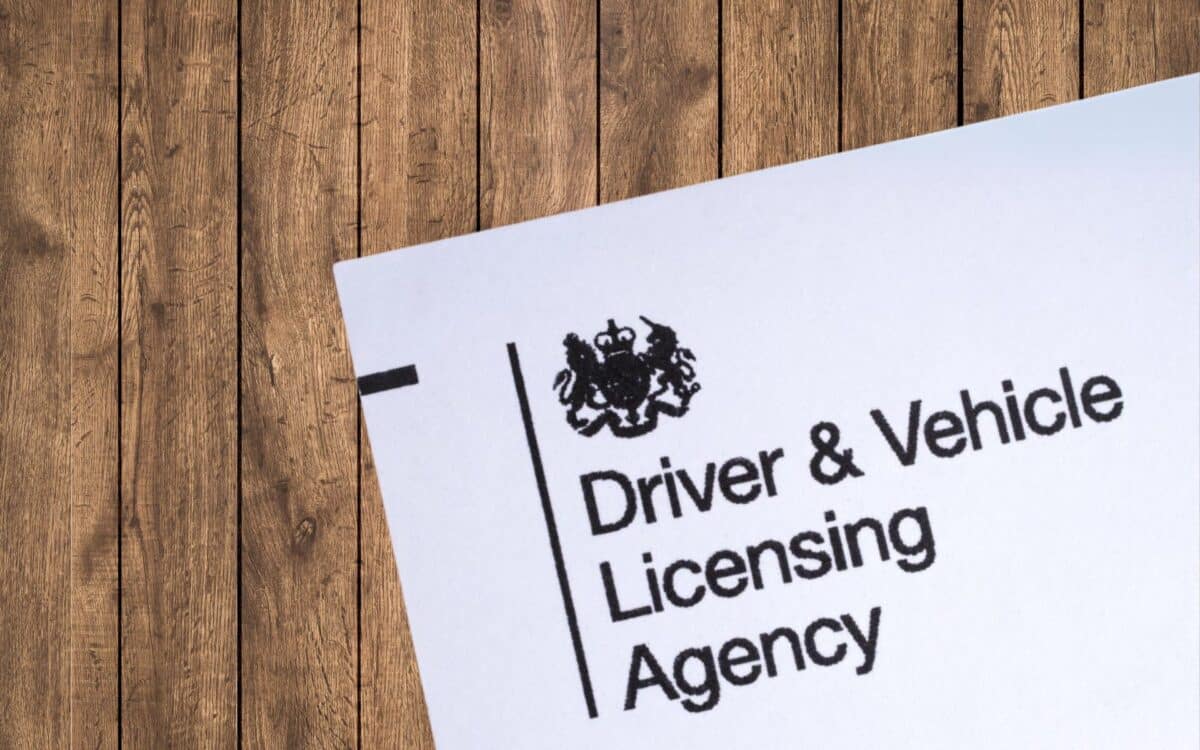Drivers in the UK are required by law to inform the DVLA of any medical condition that may affect their ability to drive, with failure to do so risking being slapped with a £1,000 fine.
The directive, although clearly enforced, is accompanied by limited public awareness and communication from the DVLA, which reveals surprisingly little detail up front.
According to information highlighted by DailyRecord, the official list encompasses a wide range of 110 medical conditions.
These include everything from visual impairments and neurological disorders to heart conditions and mental health issues, all of which may compromise a person’s fitness to drive safely.
Legal Duty to Report Medical Conditions to The DVLA
Motorists must notify the Driver and Vehicle Licensing Agency (DVLA) if they are diagnosed with any medical condition that could impair safe driving.
This includes both new diagnoses and changes to existing conditions. The legal obligation applies before taking the wheel and continues throughout a driver’s lifetime.
The information has been widely circulated by BigWantsYourCar.com, a motoring firm, which warned that failing to notify the DVLA can result not only in financial penalties but also in serious safety and insurance implications.
Full Statement From Motoring Industry
A spokesperson for BigWantsYourCar.com stated:
Drivers must understand the nature of not disclosing medical conditions to the DVLA. Beyond the risk of fines, failure to report illnesses could have severe consequences, especially if involved in an accident where an undisclosed condition may have played a role.
By keeping the DVLA informed about any changes in health status, drivers actively contribute to a safer driving environment for themselves and others.
The extensive list provided by the DVLA encompasses a wide range of medical conditions that could impact driving ability. From cancer to neurological disorders, it’s crucial for drivers to recognise the significance of reporting these conditions to authorities.
For those uncertain about whether their condition is notifiable, consulting with a healthcare professional is highly advised. It’s better to stay on the side of caution and ensure compliance with DVLA regulations to avoid potential legal and financial repercussions.
Diabetes and Cancer: What Must Be Reported
For diabetes, the DVLA must be informed if your insulin therapy extends (or is expected to extend) beyond three months,
if you experienced gestational diabetes and insulin treatment continues more than three months after giving birth,
or if you suffer from incapacitating hypoglycemia, or a medical professional has indicated a risk of developing it.
For cancer or lymphoma, disclosure is necessary only if the condition affects your brain or nervous system, if a doctor has determined that you may be unfit to drive,
if you are limited to specific vehicle types or require vehicle adaptations due to your condition, or if your medication causes side effects that could impair safe driving.
Wide Range of Health Conditions Included
The DVLA’s list covers a wide array of physical, neurological, and mental health conditions. Below is the complete list of the 110 notifiable conditions:
Agoraphobia
Alcohol problems
Alzheimer’s disease
Amputations
Angiomas or cavernomas
Ankylosing spondylitis
Anorexia nervosa
Anxiety
Aortic aneurysm
Arachnoid cyst
Arrhythmia
Arteriovenous malformation
Arthritis
Ataxia
ADHD
AIDS
Bipolar disorder (manic depression)
Blood clots
Blood pressure
Brachial plexus injury
Brain abscess, cyst or encephalitis
Brain aneurysm
Brain haemorrhage
Traumatic brain injury
Brain tumour
Broken limbs
Brugada syndrome
Burr hole surgery
Cataracts
Cataplexy
Central venous thrombosis (if still having problems after one month)
Cerebral palsy
Cognitive problems
Congenital heart disease
Fits, seizures or convulsions and driving
Déjà vu and driving
Defibrillators
Dementia
Depression (if it impacts your ability to drive safely)
Diplopia (double vision)
Dizziness or vertigo (if sudden, disabling or recurrent)
Drug use
Empyema (brain)
Essential tremor (if it impacts your ability to drive safely)
Eye conditions
Guillain Barré syndrome
Head injury (serious)
Heart failure (if it impacts your ability to drive safely)
Heart palpitations
Hemianopia
Hodgkin’s lymphoma
Huntington’s disease
Hydrocephalus
Hypoglycaemia
Hypoxic brain damage
Intracerebral haemorrhage
Korsakoff’s syndrome
Labyrinthitis (if symptoms last three months or longer)
Learning disabilities
Lewy body dementia
Limb disability
Long QT syndrome
Marfan’s syndrome
Medulloblastoma
Meningioma (if it impacts your ability to drive safely)
Motor neurone disease
Muscular dystrophy
Myasthenia gravis
Myoclonus
Narcolepsy
Night blindness
Obsessive compulsive disorder (if it impacts your ability to drive safely)
Excessive sleepiness
Optic atrophy
Pacemakers
Paranoid schizophrenia
Paraplegia
Parkinson’s disease
Peripheral neuropathy
Personality disorder
Pituitary tumour
Post traumatic stress disorder (PTSD) (if it impacts your ability to drive safely)
Psychosis
Psychotic depression
Pulmonary arterial hypertension
Severe memory problems
Stroke (if you’re still having problems after one month)
Surgery (if you’re still unable to drive three months later)
Syncope (including blackouts or fainting)
Seizures/epilepsy
Sleep apnoea
Schizo-affective disorder
Schizophrenia
Scotoma
Severe communication disorders (if it impacts your ability to drive safely)
Spinal conditions, injuries or spinal surgery
Subarachnoid haemorrhage
Tachycardia
Tourette’s syndrome (if it impacts your ability to drive safely)
Tunnel vision
Usher syndrome
Reduced visual acuity
Vertigo
Visual field defect
VP shunts
Wolff-Parkinson-White syndrome
Drivers are encouraged to regularly evaluate their health status and consult with their GP if unsure whether a condition requires disclosure. The DVLA provides guidelines and tools to help motorists make informed decisions.
Self-reporting is not just a legal responsibility — it plays a direct role in road safety. Medical professionals also have a role to play by advising patients on driving fitness.









